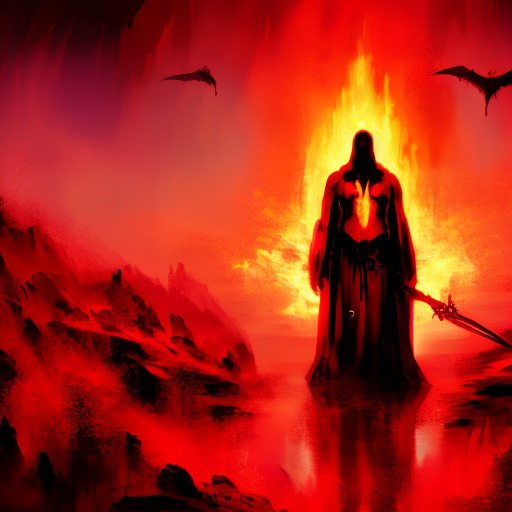One-line Summary:
The Burning God is a thrilling conclusion to the Poppy War trilogy, where Rin must confront her inner demons and make difficult choices to save her country from destruction.
The Rise of a Phoenix
In The Burning God, the final installment of R.F. Kuang’s Poppy War trilogy, we continue to follow the journey of Rin, a powerful and complex protagonist. After the devastating events of the previous book, The Dragon Republic, Rin finds herself in a position of power as the Phoenix Empress, leading the Southern Coalition against the Hesperian Empire. However, her newfound authority comes at a great cost, as she grapples with the weight of her decisions and the darkness within her.
As Rin navigates the treacherous world of politics and warfare, she must confront her inner demons and the consequences of her actions. The lines between right and wrong blur as she is forced to make difficult choices to save her country from destruction. With her immense power and the Phoenix’s fury burning within her, Rin becomes a force to be reckoned with, but at what cost?
A Clash of Ideologies
The Burning God delves deep into the clash of ideologies between the Hesperians and the people of Nikan. While the Hesperians seek to impose their colonial rule and eradicate the indigenous culture, the people of Nikan fight for their freedom and the preservation of their traditions. Kuang expertly explores the complexities of war, power, and the consequences of imperialism.
Rin’s journey is not just a physical one, but also a battle within herself. She grapples with her identity as a shaman, a soldier, and a leader. The internal struggle between her desire for vengeance and her duty to protect her people adds layers of depth to her character. Rin’s internal conflict mirrors the external conflict between the Hesperians and the people of Nikan, highlighting the complexities of war and the moral gray areas that arise in times of conflict.
The Cost of Power
Throughout the trilogy, Kuang explores the theme of power and its corrupting influence. In The Burning God, this theme reaches its climax as Rin is forced to confront the consequences of her actions and the price she has paid for her power. The choices she makes have far-reaching consequences, not only for herself but for the entire nation. The novel forces readers to question the true cost of power and the sacrifices one must make to achieve their goals.
Key Takeaways:
- The Burning God is a thrilling conclusion to the Poppy War trilogy, filled with complex characters and thought-provoking themes.
- Kuang expertly explores the clash of ideologies, the complexities of war, and the moral gray areas that arise in times of conflict.
- The novel delves deep into the theme of power and its corrupting influence, forcing readers to question the true cost of power.
“Power is neither good nor evil. It just is. It’s what people do with power that matters.” – Rin
In The Burning God, R.F. Kuang delivers a powerful and emotionally charged conclusion to the Poppy War trilogy. Through Rin’s journey, readers are confronted with the complexities of war, the clash of ideologies, and the true cost of power. The novel serves as a reminder that power, in the hands of both individuals and nations, can be a double-edged sword. As readers turn the final page, they are left with a profound understanding of the sacrifices made in the pursuit of power and the enduring consequences of those choices.












